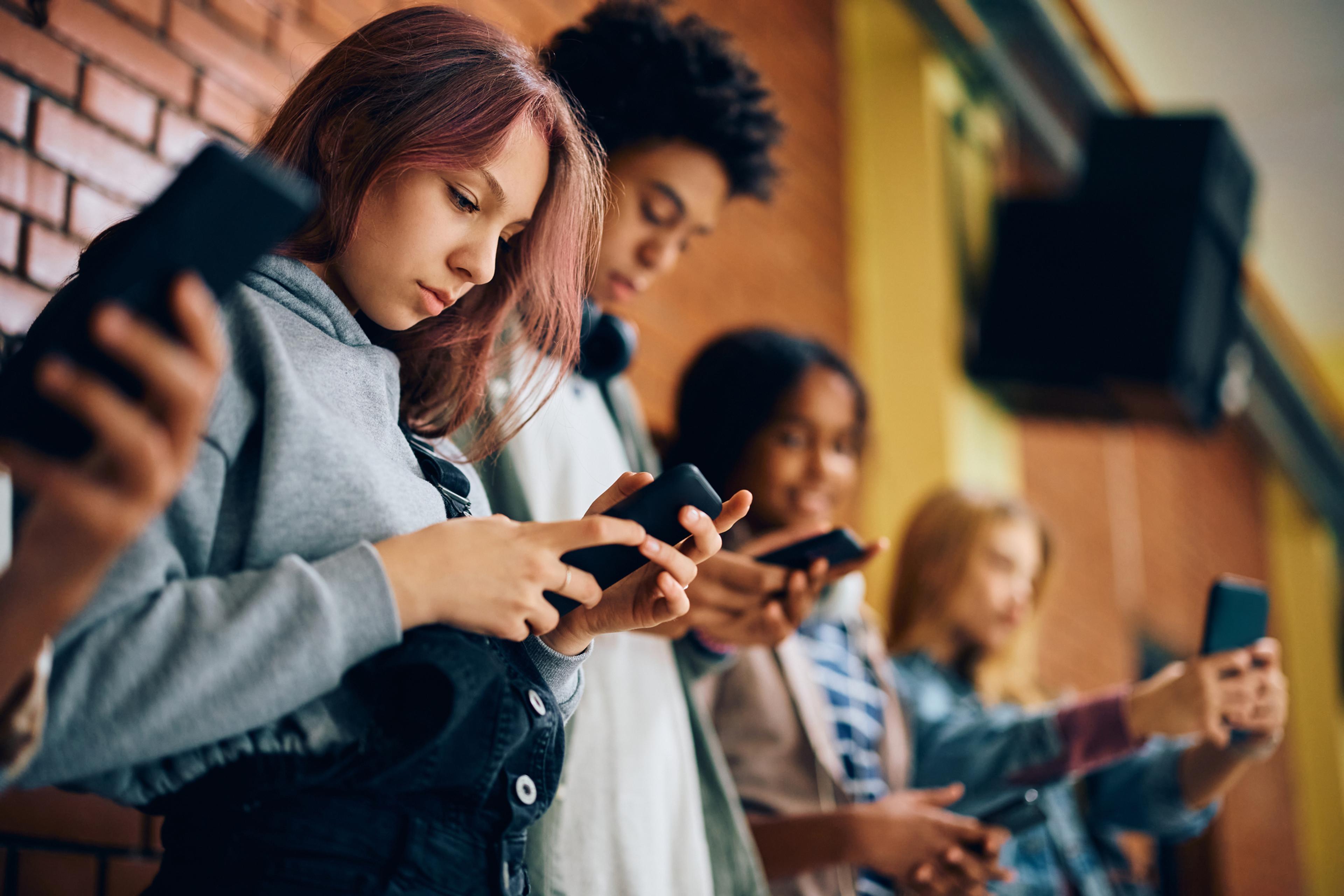The Harms of Social Media for Children and Teens

Dr. Kristyn Gregory, D.O.
| 4 min read
Dr Kristyn Gregory, D.O., is a former medical director at Blue Cross Blue Shield of Michigan. Dr. Gregory is a native Michigander and a graduate of medical school at Midwestern University in Chicago. She completed her adult psychiatry residency at Henry Ford Detroit Michigan, and child and adolescent psychiatry fellowship at Wayne State University. She is a diplomate of the American Board of Psychiatry and Neurology.

Teens who use social media more than three hours a day more than double their risk of depression and anxiety, according to the Office of the Surgeon General, and teens spend an average of 3.5 hours a day on social media.
The Surgeon General’s office has concluded social media is “not sufficiently safe” for adolescents. What does this mean and what can you do about it?
What impact does social media have on kids and teens?
Social media platforms such as Instagram are linked to higher levels of depression, social anxiety, lower self-esteem and body image issues, according to the American Psychological Association (APA). These negative outcomes may be related to how a child or teen uses the platform. Adolescents who look to likes and comments for their sense of self-worth are more likely to experience the negative impacts of social media. Curated and edited images can give adolescents a false sense of what their peers or other people on social media are doing in their offline lives.
The U.S. Surgeon General’s office has noted brain development as another factor in the harms of social media. Children and teens age 10 to 19 are undergoing brain development in which their well-being can widely fluctuate, and they have the highest period of risk-taking behaviors. According to the Surgeon General, frequent social media use may be associated with changes in the parts of the brain that manage impulse control and emotional learning, regulation and behavior. This means teens may be more sensitive to comments and interactions on social media. While social media can also be stressful for adults, adults have a more developed brain, emotional regulation and sense of self.
Like any tool, social media has benefits. Teens can find people with similar interests, talk to people who have different perspectives and stay connected with friends and family who live farther away.
What can we do to reduce the harm of social media?
Social media isn’t going away, but there are ways to limit the negative impacts of it. Have a conversation with your child about their social media use, what they like and dislike about it, what content they are seeing and ways to improve their experience. Encourage your child to seek help immediately if they or a friend are experiencing difficulties such as cyberbullying or anxiety. Teach them to not engage in harassment and consider the impact of their comments on others.
Families can work together to make a plan for their social media use.
Here are ways to improve your child’s use of social media:
Set limits.
Even using functions within the apps, parents and adolescents can set daily time limits. One study, according to the Surgeon General, showed 30 minutes of social media a day for three weeks reduced the severity of depression, and another study found limited social media led to 25% to 40% increase in overall well-being and life satisfaction.
Phones and laptops also track screen time, which can help you and your child see how much time they are spending on their devices and on which apps.
Social media platforms also have ways to limit the reach of your account. Making accounts private, limiting followers and sharing only with friends can help make social media more manageable.
Take breaks
Turn off notifications, remove apps from phones and/or take periods of time completely away from social media. Parents can also do this to provide support for their child. Creating family time with no phones allowed for everyone can be a way to support adolescents and model good behavior around social media.
Unfollow and mute.
If your child is struggling with particular people or accounts on social media, unfollow or mute them. There is no need for your child to pay attention to accounts that make them feel bad about themselves.
Instead, encourage your child to curate a social media experience that provides fun and joy with friends and in accordance with their interests.
Find offline hobbies and goals.
Limiting social media can be difficult without something to replace it. Find ways for your child to engage in real life activities such as sports, music, theater or clubs. Whether this is a formal school extracurricular or with a small group of friends, adding in in-person activities helps children with social and emotional growth, self-confidence and connection.
Kristyn Gregory, D.O., medical director of behavioral health at Blue Cross Blue Shield of Michigan. For more health tips and guidance, visit MIBlueDaily.
Image: Getty Images
Related:





